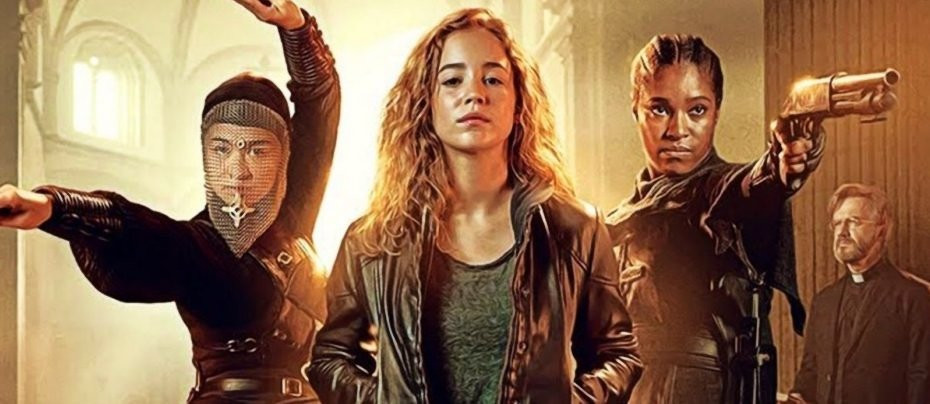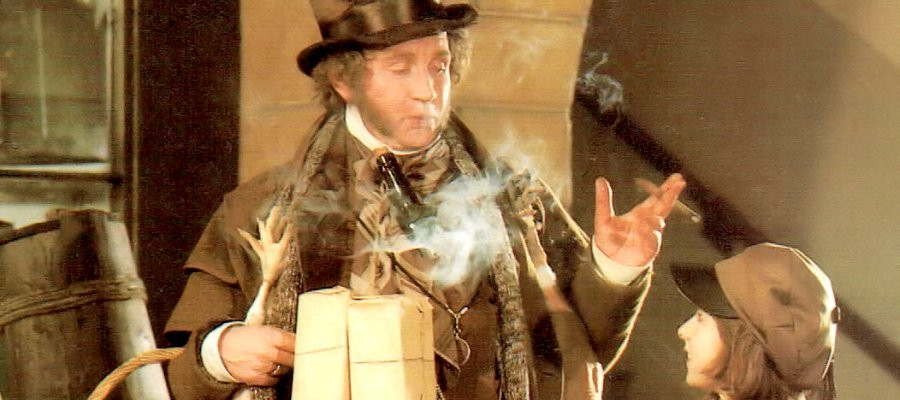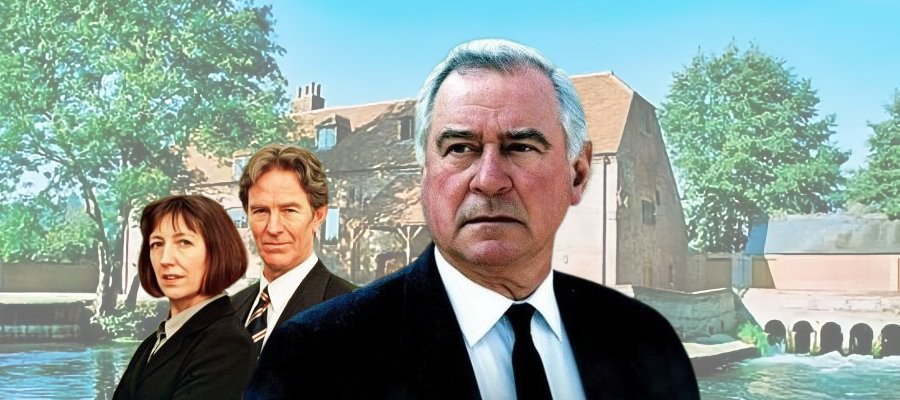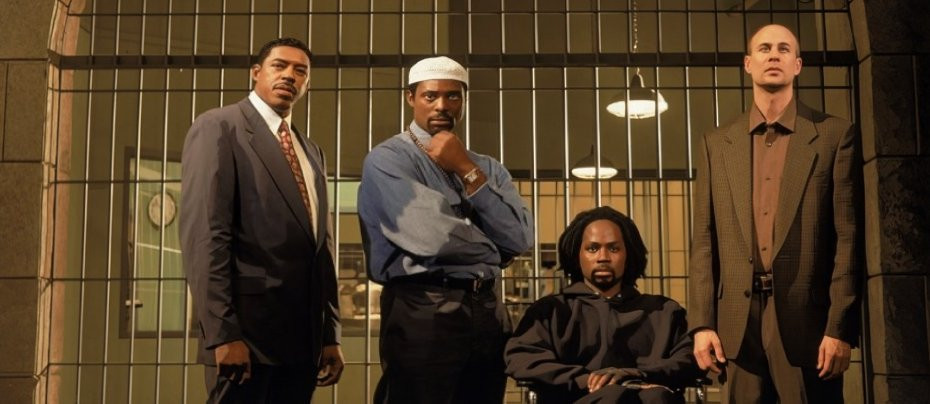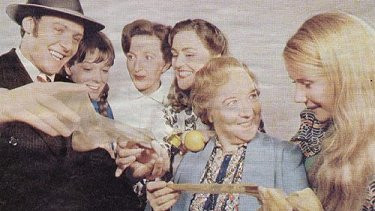
Nostromo
1997 - Italy UkBased on a novel by critic's favourite Joseph Conrad, 'Nostromo' was an international prestige project. It is said to have cost about twenty million dollars back in the day when that was serious money for a studio feature film, never mind a television "miniseries," and it shows. Whatever else, the money is there on the screen.
Backed by the BBC and RAI among others, filmed in location in Colombia, blessed with a score by Ennio Morricone - who never came cheap - and starring Brian Dennehy from the USA, Colin Firth and Serena Scott Thomas from the UK, Claudia Cardinale from Tunisia via Italy and France, Lothaire Bluteau from Canada, and Joaquim de Almeida from Portugal, as well as a strong supporting cast of Spanish and Hispanic actors, it was epic in its production and ambitions.

A fictional South American country of Conrad's time, around the turn of the 20th Century, is divided geographically by mountains and socially by class. As in many real nations on that continent at the time, hidalgos of Spanish descent own much of the land, while the descendants of slaves or the original native population have little or nothing. Meanwhile a dynamic third force in the form of foreign entrepreneurs - British, American, Italian, and German are featured - is growing in influence and wealth.
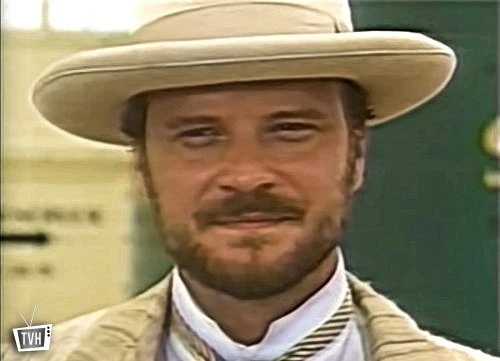
Among them is Charles Gould (Colin Firth), a young engineer of British origin who is obsessed with reopening the silver mine where his father was murdered a few years before during the murderous dictatorship of a nationalist demagogue. In this he is successful, and the riches of the mine make him the uncrowned "King" of the Province. However, this comes at a price. His wealth makes him the object of envy and to protect it he must involve himself in some murky local politics. His good intentions become compromised. In his obsession he also neglects his wife (Serena Scott Thomas).
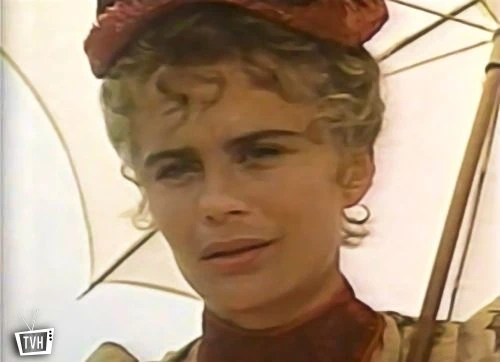
When his ally, the well-intentioned President, is murdered by a nationalist General of native descent, Gould threatens to blow up his mine rather than let it be seized by the new regime. Meanwhile, he has to get the last consignment of silver away safely. He therefore entrusts it to a man held in respect by all for his reputation for reliability - Nostromo.

His real name is Giovanni Battista Fidanza, "Nostromo" being an Italian title of respect for a chief seaman below the rank of a watch officer, the equivalent of a boatswain. It means literally "our man." Nostromo holds a relatively humble position, chief stevedore for the local shipping company, but he takes enormous pride in his reputation. He ignores the dying request of a woman who is like a mother to him, to fetch a priest, rather than let his employers down.
Although he is unable to meet the ship coming to collect it as planned, he gets the silver to a safe hiding place. He then returns to play a crucial role in the complicated political events that form the most exciting part of the drama. The brother of the new military dictator has crossed the mountains with a small force to secure the mine. He is supported by the demagogic leader of the local workers and, reluctantly, by the local aristocracy. He threatens Gould in order to get him to sign over the mine and then sentences him to the garotte when he refuses.

Nostromo is sent on a difficult journey to a friendly General to get help. He succeeds in his mission. However, when he returns to pick up the silver, he finds a few bars are missing. This is enough to dent the reputation for total reliability by which he sets such store. However, everyone assumes that the silver was lost at sea, and the winning side in the political struggle is not unduly concerned by the loss since the mine is no longer under threat and can therefore produce more. So Nostromo decides to tell no one about the silver and his failure. He is rewarded for his contribution to victory by being given a small ship.
He then faces the moral and practical dilemma of what, if anything, to do with the hidden silver. A series of bad decisions has tragic consequences.
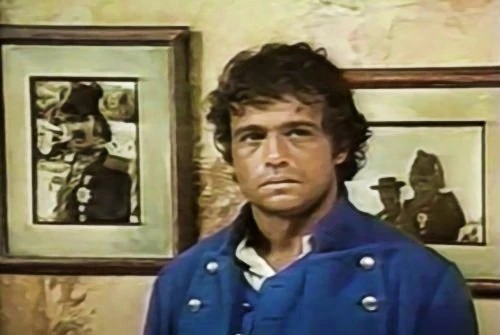
The whole story is delivered with great visual style, from the memorable opening scene of a man apparently riding through the jungle - when in reality he is being carried by a band of captives - on. Old Cartagena is a star. The set pieces, including riots and battles, look realistic. There is a fine sense of period throughout. The technical departments really earned their pay.
Yet it was not quite the "event television" it was intended to be. It was admired, but did not make the impact it deserved. Why not?
Its most obvious problem is that from the start its emotional impact is limited by it being set in a fictional country. The dramatic stakes are reduced if the audience knows that what it is seeing is not real. In fact, the sort of events portrayed in 'Nostromo' really did take place in various South American nations, and so it may be more accurate than many nominal historical dramas which in practice have little respect for history - but most viewers do not know that, so they invest more in what they assume is true than in what they know is fiction.
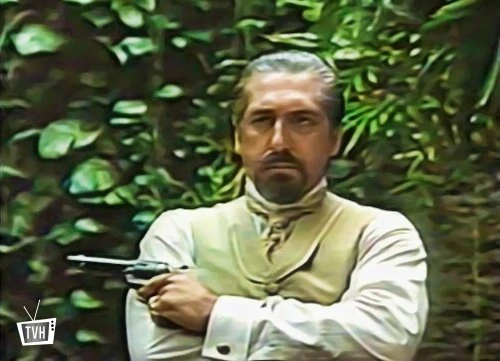
The next problem is a common one in international co-production: an inconsistency of tone. The British, American, and Italian acting and directing traditions are very different. All have their strengths, so it is not a question of superiority, but they clash if they are presented together in the same production. The British like subtlety, the Americans are more direct, and the Italians more operatic - not least in their greater reliance on music to convey feeling, which, since they have Morricone to hand, is understandable.
The respected Anglophile Italian producer Fernando Ghia, who had made The Mission, was the right man to overcome this difficulty, and on the whole he succeeded, but not totally. There are some scenes that play like Merchant Ivory period social drama, while others are pure Spaghetti Western, complete with Morricone. It is an uneasy combination, to put it mildly.
The international cast exaggerates the effect. Most perform well on their own terms, but sometimes they seem to be acting in different projects. Claudio Amendola brings a powerful masculine presence to Nostromo, and one can believe that this is indeed a natural leader to whom other men look up and to whom women are attracted, but it is fair to say there is no depth to the character and for much of the "miniseries" one wonders why it is named after his character. Gould is far more interesting.
It is therefore a bit frustrating when one spends the first half thinking the story is primarily about Gould only to find the second half is more and more about Nostromo - who at first seemed little more than a supporting character - with Gould fading more and more into the background.
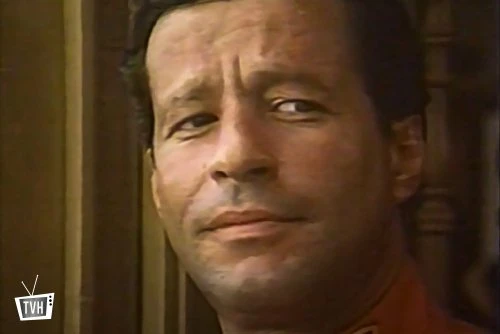
Indeed, there seem at first to be a number of other characters who look more likely to be the hero than Nostromo, about whom everyone is saying great things but whose actual personality and achievements are not that impressive. We might wonder, for example, if the real hero is going to be the traditional drunken physician, Monygham, who seeks redemption for what he sees as his past failures, and who is given extra class by Albert Finney in one of the best of his later performances. Or we might assume that it is really going to be the coming-of-age story of how the pampered cosmopolitan, Decoud, played by Lothaire Bluteau, who was so good in Jesus of Montreal and Black Robe, is turned into a real man.
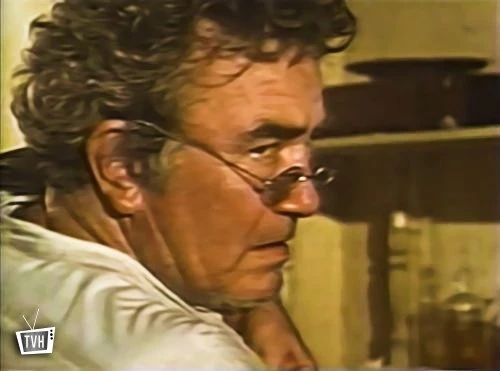
No. These, and a number of other potentially interesting character arcs go nowhere. This is no fault of the actors. On the contrary, a few nods of appreciation are required. The Italian actresses Stefania Montorsi and Romina Mondello look as if they really could be the daughters of the beautiful Claudia Cardinale - who it is always good to see. De Almeida is, as usual, a fine villain, and Roberto Escobar has fun as the dictator's ghastly brother. Paul Brooke is perfect as Nostromo's original employer, an expat Briton with a fine sense of the dignity owed to that status. It is a shame we do not see more of the late, great Brian Dennehy, but the latent power of his presence is enough to suggest the importance and ruthlessness of the bespectacled, Bible-reading American businessman. His final assurance to Gould about White House support reminds us that the President at the time was the robust Teddy Roosevelt.
This brings us to the final disappointment, which is that the political angle of the story was never really developed. It does make a couple of interesting points. First, nearly all the political players of the different factions - Gould's ally the President, the children of the aristocracy who set up a newspaper, the leader of the workers who backs the nationalists - capital, land, and labour together, consider or describe themselves as "liberals." Second, without Gould there would be no mine, and without the mine there would be no progress - it finances a new railway, telephone system, and electricity plant - even if it also has to be noted that it is Gould and his mine who profit most from such progress. A lot more could have been said on these points.
This absence of a strong political narrative matters because something was needed to make up for the lack of a definite protagonist throughout. That really ought to have been Gould. Firth is well cast on this occasion, and it has to be said he has excellent posture on horseback, but we never get to know who Gould really is. The subplot of his neglect of his wife also goes nowhere, despite hints of her having a Lady Chatterley crush on hunky Nostromo. In the end, Nostromo promises a great deal but delivers very little, even if it is often compelling along the way.
John Winterson Richards' website can be found here: John Winterson Richards
Seen this show? How do you rate it?
Seen this show? How do you rate it?
Published on December 17th, 2020. Written by John Winterson Richards for Television Heaven.





